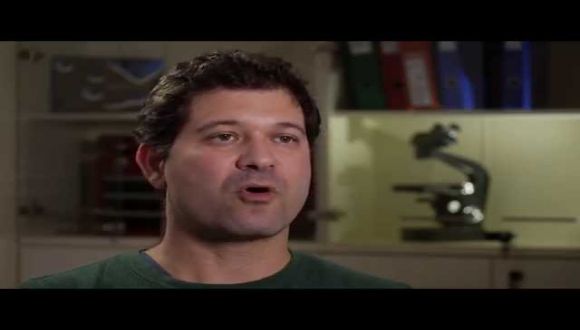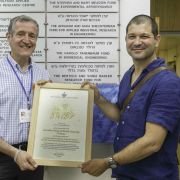TAU's Super-Algae Can Fuel Energy 'Revolution'
TAU researcher Dr. Iftach Yakoby has genetically altered micro-algae to produce five times more hydrogen than they normally do. Many experts believe that fuel produced with hydrogen is the energy source of the future, being both efficient and environmentally friendly. According to the results of Dr. Yakoby's study, the level of hydrogen produced by the micro-algae is sufficient to power cars, electric bikes, and in the future, even greater energy needs.
Dr. Yakoby and his team in the Molecular Biology and Ecology of Plants Department at the George S. Wise Faculty of Life Sciences disproved the assumption that this type of algae only emits hydrogen for a short period, at daybreak. The team's breakthrough came when they discovered that throughout the day micro-algae produce small amounts of hydrogen even while they produce larger amounts of oxygen during photosynthesis. Subsequently, they discovered a mechanism within the cells that works to eliminate oxygen. "This signifies that micro-algae have enormous untapped potential to produce fuel with hydrogen."

Yakoby's findings were published recently in Plant Physiology and Biotechnology for Biofuel.
Hydrogen fuel represents an untapped source of energy that is efficient and environmentally friendly. For example, 5 kilos of hydrogen fuel can take a car more than 500km while only 30 grams is needed for an electric bike to travel 100 km. Toyota and Hyundai have started to manufacture electric cars that run on hydrogen fuel, and scientists around the world are working ardently to find ways to produce it on a large scale.
The TAU discovery has potential for global impact, said Yakoby. "Our discovery constitutes an important step toward a revolution: the production of enough clean energy to supply all of our energy needs," he said. "Our challenge now is to transfer the hydrogen-producing capability of our lab micro-algae to wild micro-algae, so that this function will survive in nature. In other words, we want to domesticate micro-algae and cultivate it for our needs, just as we have cultivated wheat to serve our needs."
Video courtesy of American Friends of Tel Aviv University.





